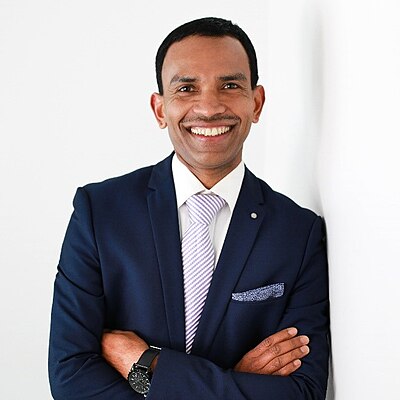
Search
Ranjith Pathegama Gamage

Ranjith Pathegama Gamage, a Fellow of the Australian Academy of Technology and Engineering, is an Australian academic based at Monash University, where he holds the position of Professor in Geomechanics Engineering. His research has significantly influenced understanding of the Carbon sequestration. He has also developed new sustainable technologies for extracting resources (e.g. minerals) from deep earth and natural gas from coal seams, shale, and tight geological formations.
Early life and education
Gamage was born in Sri Lanka and he received his BSc in Engineering (with a UNESCO Gold Medal) from the University of Moratuwa, after which he gained a PhD from Wollongong University, Australia. His PhD was on the “Stress-strain and permeability characteristics of two-phase (water+gas) flow through fractured rocks”. His first job after the PhD was as an assistant professor at Nanyang Technological University, Singapore. He returned to Australia in 2003 to work at Monash University.
Academic and research career
Gamage is the founder and director of the Deep Earth Energy Research Lab at Monash University. His research areas include Carbon sequestration, unconventional oil, unconventional gas (shale gas, tight gas, coal seam gas, gas hydrate), deep geothermal energy, geomechanics, rock mechanics, enhanced oil recovery (EOR) methodologies, hydraulic fracturing, sand production from unconsolidated reservoirs, and future technologies for in-situ mining. He has also done substantial work in converting industrial waste products into useful and environmentally sustainable materials, such as cement or fertiliser. Around 2015 he began developing a new product for sustainable deep earth resource recovery: called SREMA
Brief list of academic activities:
- Serves as the Editor-in-Chief of the journal: Geomechanics and Geophysics for GeoEnergy and GeoResource.
- Founder and Chair of the International Conference on Geomechanics for GeoEnergy and GeoResources (IC3G) which runs every two years.
Patents
- Slow Releasing Material Agent (SREMA) for rock breaking: For sustainable mining and hydrocarbon recoveries ( Patent No. USA:10 836 955B2).
Awards and honours
- 2023: Elected as Foreign Fellow of Chinese Academy of Engineering, China (FCAE).
- 2023: Global Research Leader in Mineral Resources (The Australian).
- 2023: Global Research Leader in Geotechnical Engineering (The Australian).
- 2023: IABCA Award (Australia India Science, Research & Development Award), Finalist. “Next generation leaders for Net-zero emission and critical minerals”.
- 2022: Elected as Foreign Fellow of Indian National Academy of Engineering, India (FINAE).
- 2021: Elected as Member of European Academy of Science and Arts, Europe (MAE).
- 2021: Global Research Leader: in the field of Mining and Mineral Resources (The Australian).
- 2021: Australian Field Leader: in the field of Environmental and Geological Engineering (The Australian).
- 2020: USA R&D100 Awards, USA (Finalist): often referred to as “the Nobel Prizes of Technology.”
- 2020: Fellow of Institute of Materials, Minerals and Mining (IOM3), UK.
- 2020: Fellow of Geological Society, UK.
- 2020: Global leader in Mining and Mineral Resources (one of the 9 global filed leaders).
- 2020: finalist for 2020 R&D 100 Awards.
- 2019: elected as a Fellow of the Australian Academy of Technology and Engineering.
- 2017: Elsevier Scopus award for Sustainability.
- 2013: the Australian Leadership award.
- 2009: an Australian Research Council Future Fellowship for his research work to combat climate change.
- Fellow of the American Society of Civil Engineers (ASCE) and Engineers Australia.
References
External links
- http://www.3gdeep.com/
- https://www.springer.com/engineering/civil+engineering/journal/40948
- http://www.ic3g.com/2018/index.php
Text submitted to CC-BY-SA license. Source: Ranjith Pathegama Gamage by Wikipedia (Historical)
Owlapps.net - since 2012 - Les chouettes applications du hibou


